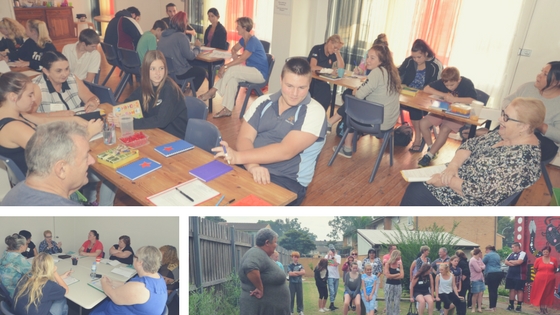Leadership in the Community: Building Stronger Communities Through Enabling Leadership

Politics was once about causes and moral obligation; about standing up for what we believed in and making our voices heard. However, it feels that, recently, this idealism is lacking from modern governance.
What we seem to be left with is a political system in which power and prestige are the driving forces, in which cynicism, malice, and unethical conduct are often rewarded. This is certainly not true of all politicians and leaders, but it feels as if it is becoming the prevailing sentiment in Australian politics today.
Unfortunately, this sentiment has permeated local community life too. At the level of local NGOs – for years, driving forces for positive change and action – have often been replaced now with loss of ideas and inspiration. Instead of providing leadership which supports the community, fear has driven many NGO leaders to become self-absorbed, to consider themselves and their livelihoods before they start to assist the community. The fact is, they have become fearful of saying and doing the wrong thing.
Rebuilding the Community
How can we rebuild the spirit of equalitarianism which made our communities so strong? How can we aid the democratic system by building communities which can hold power to account and can truly value people’s voices?
To begin with, we need to understand what a community is. A community can be defined as the place and society in which we live, but it is more than this. It is a spirit and a bond; something intrinsic and shared between the people who inhabit this space. Perhaps it is this that has been lost; this spirit of warmth and community-mindedness which used to bind people together.
It is not that the infrastructure is not there. In our local communities we usually see meeting spaces and areas for gatherings all over the place. Whether these are community halls, school auditoriums, designated venues or simply parks, playing fields and open spaces, each has a role to play in bringing people together. But, if these places do exist, what is preventing us from fully using such options?
The Role of Leadership
It could be that we are just not using these spaces effectively. It is what happens in these spaces that contributes to the unique and nuanced culture of an individual community, and, as such, they must be inclusive.
Leadership, when deployed effectively, has its part to play in this. True leadership is about nurturing community spirit through social cohesion and inclusivity. This means providing an environment in which it can grow, and encouraging its ongoing development and reinforcement.
For example, if a community group want to host a free workshop to help residents gain useful or interesting skills, local leadership can help by making sure that details of the event are spread throughout the local population. Alternatively, local leaders can provide subsidies to keep ticket prices low for events in the community.
The Fundamentals of a Caring Community
Strong community boasts a strong identity, and which looks after its residents regardless of religion, race, age divide, abilities and disabilities, gender choice and other factors that can divide. Strengths in community are obvious where we see love, empathy, tolerance, acceptance and understanding.
Real leadership, at all levels is enabling, supporting these fundamentals; real leadership causes our local communities to thrive.
Margaret Bell, AM - Founder and CEO of Chain Reaction Foundation.
| Website | Donate to our Foundation | Contact Us | Purchase the Book |
